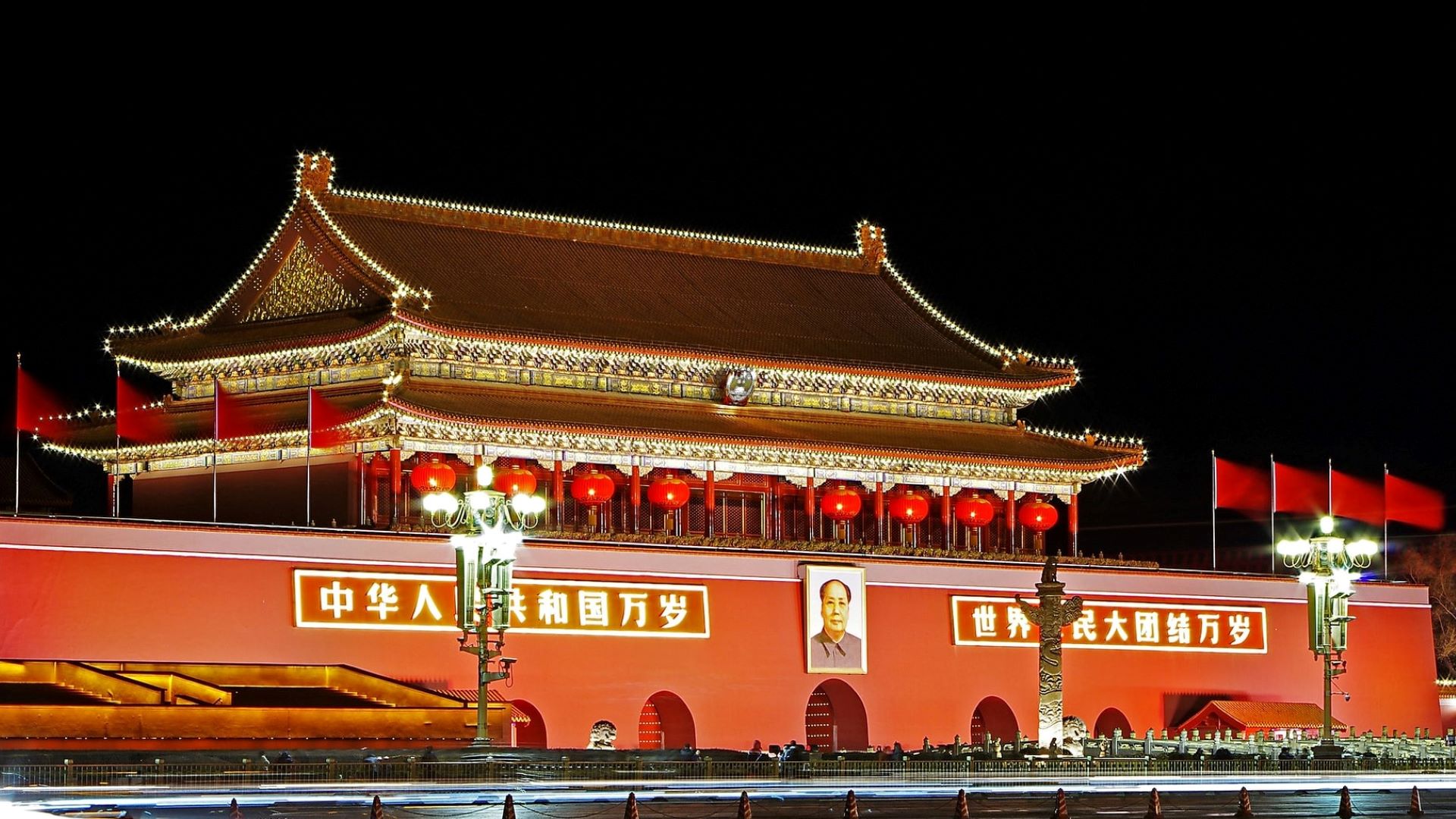For over 70 years, China has been subject to one-party rule under the unashamedly authoritarian Chinese Communist Party (CCP). While the exact nature of Chinese communist ideology has shifted over time under various leaders, Chinese citizens have been extremely limited in their personal freedom.
During the era of Mao Zedong, from 1949 until his death in 1976, China faced a series of humanitarian catastrophes caused by disastrous policies of central planning. The collectivization policies implemented as part of the so-called “Great Leap Forward,” the second of the CCP’s five year plans, created a devastating famine during the late 1950s and early 1960s in which tens of millions of Chinese citizens perished.
Due to the extreme measures taken against anyone remotely suspected of dissent, a culture of fear dominated Chinese society during the Mao era. This was further compounded during the Cultural Revolution, whereby the state aggressively promoted Maoist ideology and purged those not deemed sufficiently aligned.
After Mao, China began to liberalize in certain aspects, developing the ideology of “socialism with Chinese characteristics.” The economic reforms under Deng Xiaoping, which meant abandoning certain key communist principles, were sufficient to bring about unprecedented economic growth which has contributed to China’s status today as one of the world’s major powers. China’s rise was also facilitated by a changing U.S. foreign policy that began under the Nixon administration and culminated in the U.S. formally recognizing the People’s Republic of China at the expense of Taiwan in 1978.
However, while observers had long hoped that the changes in China would lead to the country eventually becoming less authoritarian, this has certainly not been the case. Instead, what has emerged is a belligerent regime with no regard for individual rights, intent on exporting the China model as an example to follow.
The export of technocratic authoritarianism from Xi Jinping’s China
Amid polarization and political turmoil across many Western countries and buoyed by its own increasing power, China has become ever more bold on the international stage over the past decade or so. Particularly since the Financial Crisis and the rise to power of Xi Jinping, the CCP has been ramping up efforts to showcase its technocratic and authoritarian model of governance as a preferable and more efficient alternative to the liberal democratic Western model.
China seeks not only to export goods, but also elements of its governance. The CCP has become increasingly determined to compete with the U.S. ideologically. Initiatives presented as being primarily about economics and trade, such as China’s Belt and Road infrastructure project, are instead primarily about expanding China’s influence across the globe.
In recent years, China has pioneered new means for governments to keep citizens in check. To this end, a dystopian social credit system was developed for the purpose of rating citizens’ behavior.
The system effectively rewards citizens who are loyal to the CCP while penalizing those who are insufficiently enthusiastic about the country’s leadership, express dissenting views, or even associate with government critics in a social capacity. Even such minor actions as jaywalking can be picked up on and used to penalize citizens.
Through the social credit system, the Chinese state has placed a significant focus on controlling the lives of its citizens down to the smallest of details. To have a low social credit score in China means losing certain rights, such as being denied access to flights and rail travel, having one’s internet access further restricted, or being unable to secure a loan.
This ideological battle between competing models of governance is set to be a feature of the 21st century. At present, the dominance of the Western/American model appears far less secure than it did a generation ago.
China’s human rights abuses
One of the most prominent characteristics of the China model is a complete aversion to individualism. Concepts such as freedom of speech or freedom of religion are nonexistent in China.
The CCP views minority ethnic or religious groups as an inherent threat to their hegemony, similar to that of political dissent. One such group, the Uyghur Muslim population of China’s northwestern Xinjiang Province, or East Turkestan, have been particularly affected by state repression. Uyghurs are subject to unprecedented levels of intrusive state surveillance and open display of their religion or cultural symbols can have severe consequences for individuals and their families.
The policies of repression in Xinjiang have led to the destruction of thousands of mosques, children being separated from their parents, and over a million Muslims being forcibly interned in “reeducation” camps without any semblance of due process.
In these camps, the Chinese regime pushes pro-CCP propaganda in an attempt to force inmates to renounce their distinct culture and heritage in favor of a homogenous culture with Xi Jinping Thought at its core. Violence and torture are endemic in what the Chinese regime seeks to portray to the outside world as “vocational training centers.”
Furthermore, in recent years, the birth rate among the Uyghur population has plummeted, with evidence pointing to forced sterilization as a contributing factor. Investigations are also underway concerning allegations of organ harvesting perpetrated against minorities. However, due to China’s economic significance and prominent position on the world stage, there is a remarkable lack of international condemnation of the atrocities in Xinjiang, which by many criteria constitute a genocide.
The China model is corrupt and inherently hostile to individualism
Alongside human rights abuses, the Chinese regime is notoriously opaque and is steeped in corruption. This was evident in the circumstances surrounding the early stages of the COVID-19 pandemic. As the novel coronavirus spread in Wuhan, those who attempted to raise the alarm, such as Li Wenliang, were swiftly silenced and punished by the Chinese authorities.
While it is impossible to say to what extent, there is certainly a real possibility that the spread of COVID-19 and the human cost it incurred could have been mitigated or at the very least delayed had it not been for the Chinese regime’s instinct for censorship.
However, despite the woeful conduct of the Chinese government in the early stages of the pandemic, the CCP has managed to emerge from this episode with unprecedented global respect. The devastating and authoritarian state-enforced lockdown policies pioneered by the Chinese regime were successfully exported across the globe. With ideological trends becoming increasingly hostile to liberty, the China model is becoming an example that aspiring authoritarian technocrats can look to as a blueprint.
The Chinese government takes an unashamedly collectivist worldview. One in which individuals don’t matter. They are seen as belonging to the collective and exist to serve the “greater good” as understood by the CCP.
In the recently concluded case of Michael Korvig and Michael Spavor, the CCP’s disregard for individual rights was particularly evident. The Chinese regime has engaged in a policy of hostage diplomacy, whereby individuals are detained for retaliatory purposes over disputes with their home countries. The “two Michaels” are Canadian citizens who were arrested in China in December 2018 and charged with espionage. Most international observers view these charges as entirely fabricated and politically motivated.
Michael Korvig and Michael Spavor were ultimately released after the United States Department of Justice agreed to drop charges against Meng Wanzhou, a prominent Chinese businesswoman who had been detained at their request in Canada. However, many foreign citizens remain in Chinese custody on dubious charges relating to national security, where they are faced with an infamously opaque justice system under the control of the CCP.
Tensions over Taiwan are putting world peace at risk
At present, the tensions between Xi Jinping’s regime and Taiwan represent a significant threat to world peace. Although still relatively unlikely to erupt into a major conflict, the dispute involves a real chance of military confrontation between China and Taiwan, a democratic country claimed by the CCP as a breakaway province.
Since the end of the Chinese Civil War in 1949, the Chinese regime has never dared to attempt a forcible annexation of Taiwan by force. This has primarily been due to the practical difficulties of invading a fortified, mountainous island nation. However, in recent years, China’s military might has been growing significantly and Xi Jinping has made a number of references to the perceived inevitability of Taiwan’s annexation.
Since the 1950s, the U.S. has repeatedly pledged to back Taiwan against Chinese Communist aggression, and this stance was recently reiterated by President Biden. As such, any escalation in the current tensions would have the potential to create a global conflict between the world’s major powers.
Within the context of a growing rivalry between China and the West, it is important to understand and appreciate the ideas and values that the China model stands in stark opposition to. Individual liberty, economic freedom, and human rights must not be subject to negotiation.
If you are interested in getting involved in promoting the ideas of liberty while also developing your skills and meeting many like-minded students from across the world, click on the button below to apply for the Local Coordinator Program.
This piece was first published in October 2021 on the Students For Liberty website.
This piece solely expresses the opinion of the author and not necessarily the organization as a whole. Students For Liberty is committed to facilitating a broad dialogue for liberty, representing a variety of opinions.



